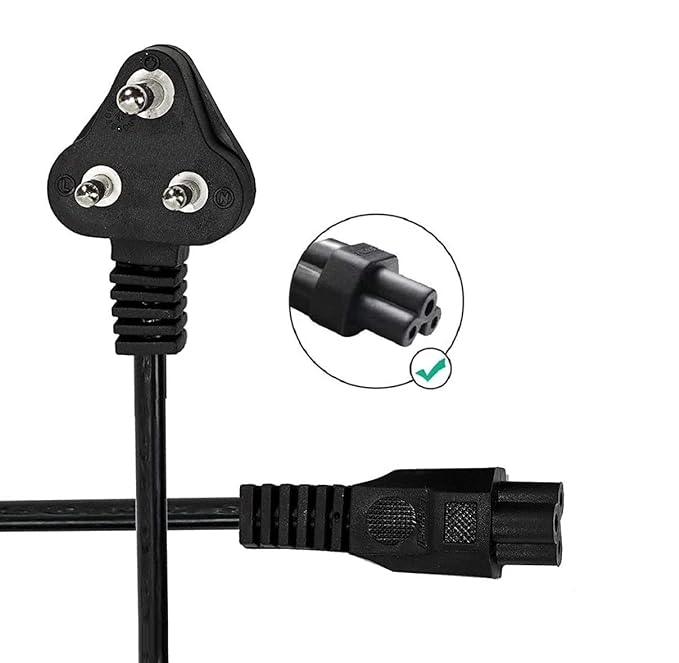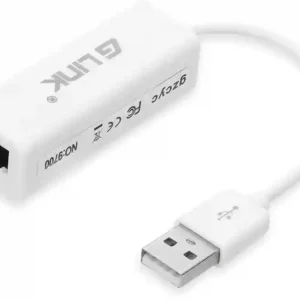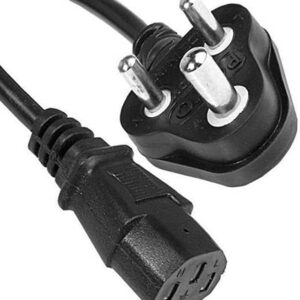In today’s fast-paced world, laptops have become indispensable tools for work, study, and entertainment. These portable devices allow us to stay connected and productive wherever we go, but their usefulness is heavily dependent on a reliable power source. Enter the laptop power cable and cord – the lifeline that keeps your device charged and ready for action. In this comprehensive guide, we’ll explore everything you need to know about laptop power cables and cords, from understanding their types and functions to optimizing their usage for maximum convenience and longevity.
The Basics: Understanding Laptop Power Cables and Cords
A laptop power cable, also known as a laptop power cord, is the essential link between your laptop and the electrical outlet. It serves the crucial function of delivering power from the wall socket to your device’s battery, ensuring that it remains charged and operational. While the terms “power cable” and “power cord” are often used interchangeably, they refer to the same component.
Types of Laptop Power Cables and Cords
Laptop power cables and cords come in various shapes, sizes, and configurations, catering to different laptop models and user preferences. Here are some common types:
- AC Adapter Cord: This is the most basic type of laptop power cord, typically included with the AC adapter or charger. It features a two- or three-pronged plug on one end and a connector that plugs into the laptop on the other end.
- Detachable Power Cord: Some laptops come with detachable power cords, allowing users to replace the cord without replacing the entire adapter if it becomes damaged or worn out. These cords often feature a standard plug on one end and a connector specific to the laptop model on the other end.
- Universal Power Cord: Universal power cords are designed to be compatible with a wide range of laptop models, offering versatility and convenience for users who own multiple devices. They typically feature interchangeable connectors or adapters to fit different laptops.
- Slim Tip Power Cord: Many modern laptops, especially those from major manufacturers like Lenovo, use slim tip power cords with proprietary connectors. These cords are designed to deliver power efficiently while minimizing bulk and weight.
Key Features to Consider
When choosing a laptop power cable or cord, several key features should be taken into account to ensure compatibility, safety, and reliability:
- Connector Type: Make sure the connector on the cord matches the port on your laptop. Different laptop models may use different types of connectors, so it’s essential to check compatibility before purchasing.
- Length: The length of the power cord can significantly impact convenience and flexibility. Choose a cord long enough to reach the nearest power outlet without being excessively bulky or cumbersome.
- Gauge and Thickness: Thicker cables with a lower gauge number can handle higher currents more efficiently, reducing the risk of overheating or voltage drop. Look for cords with sufficient thickness to support the power requirements of your laptop.
- Build Quality: Opt for power cables and cords made from high-quality materials with sturdy construction. Well-built cords are less prone to damage from bending, twisting, or tugging, ensuring longevity and reliability.
- Certifications: Look for certifications such as UL (Underwriters Laboratories) or CE (Conformité Européene) to ensure that the power cord meets safety and quality standards.
Common Issues and Solutions
Despite their simple design, laptop power cables and cords can encounter various issues that may affect their performance or reliability. Here are some common problems and their solutions:
- Physical Damage: Over time, power cords can suffer from wear and tear, including fraying, kinks, or cuts in the insulation. Inspect your cord regularly for signs of damage and replace it if necessary to prevent electrical hazards.
- Loose Connections: Loose connections between the cord and the laptop or the power outlet can result in intermittent charging or power loss. Ensure that both ends of the cord are securely plugged in and consider using cable management solutions to reduce strain on the connectors.
- Overheating: If the power cord becomes excessively hot during use, it may indicate an overload or a faulty adapter. Check the power rating of your adapter and avoid using incompatible or damaged cords that can lead to overheating.
- Compatibility Issues: Using an incompatible power cord or adapter can damage your laptop’s battery or cause other issues. Always use the cord and adapter recommended by the manufacturer or ensure compatibility with your laptop’s specifications.
Tips for Maximizing Performance and Longevity
To get the most out of your laptop power cable or cord and ensure reliable performance over time, consider the following tips:
- Handle with Care: Avoid bending, twisting, or pulling on the cord excessively, as this can damage the wires and connectors. When unplugging the cord, grasp it by the plug rather than pulling on the cord itself.
- Store Properly: When not in use, coil the cord loosely and store it in a cool, dry place away from direct sunlight and heat sources. Avoid wrapping the cord tightly around the adapter or other objects, as this can cause kinks or damage.
- Keep Clean: Periodically clean the connectors and contacts on both ends of the cord to remove dust, dirt, or debris that may interfere with the connection. Use a soft, dry cloth or compressed air to gently clean the surfaces.
- Use Surge Protection: Invest in a surge protector or a UPS (Uninterruptible Power Supply) to protect your laptop and other electronic devices from power surges, spikes, or fluctuations that can damage sensitive components.
- Replace When Necessary: If your power cord shows signs of damage or wear, such as exposed wires, frayed insulation, or loose connectors, replace it immediately to avoid electrical hazards and ensure safe operation.
Conclusion
Laptop power cables and cords are essential accessories that enable you to keep your device powered and productive, whether you’re working on the go or at home. By understanding the different types of cords, key features to consider, common issues and solutions, and tips for maximizing performance and longevity, you can choose the right cord for your laptop and ensure reliable power supply for years to come. Invest in a high-quality power cord, handle it with care, and follow best practices for usage and maintenance to make the most of your laptop computing experience.






Reviews
There are no reviews yet.